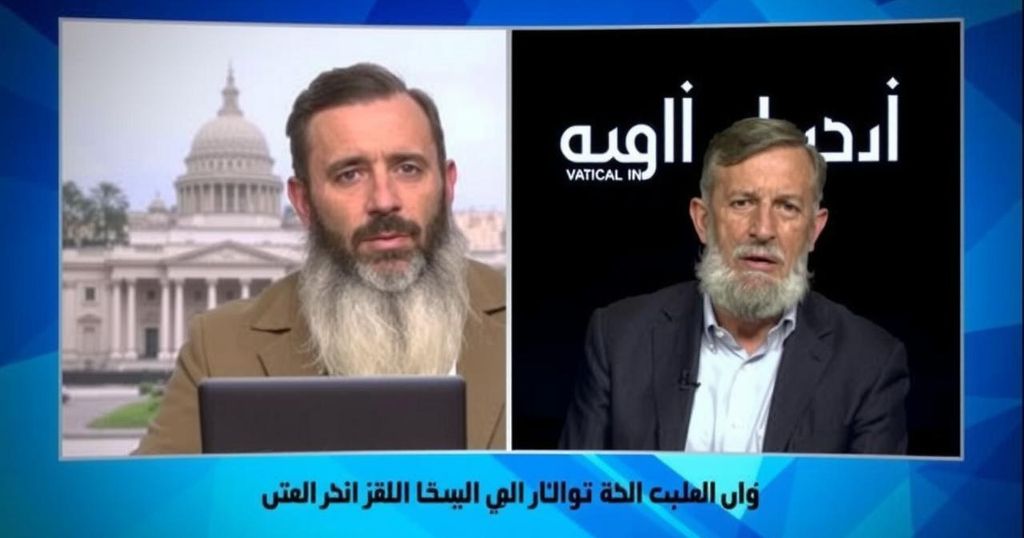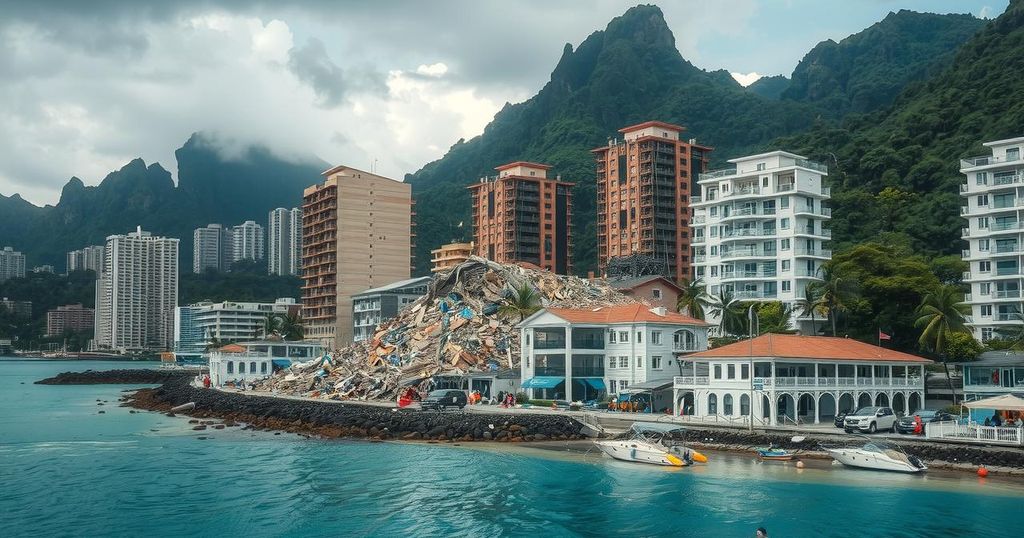Julani Declares End to Foreign Interventions in Syria, Emphasizes Reconstruction
Ahmad Julani, leader of HTS, announced in a TV interview that Israel’s reasons for entering Syria are no longer valid with the exit of Iranian forces. He advocated for focusing on reconstruction and bolstering Syrian sovereignty while calling for international support. Julani also denounced the Assad regime’s exploitation and indicated plans to cease captagon production. His reformed approach aims to protect minority groups and consolidate military authority under the Syrian Defense Ministry.
In a significant television interview with opposition channel Syria.tv, Ahmad “Abu Mohammad al-Julani” al-Sharaa, the leader of Hayat Tahrir al-Sham (HTS), addressed the current state and future direction of Syria. He asserted that Israel’s prior justifications for intervening in Syria have dissipated following the departure of Iranian forces. Julani emphasized focusing on reconstruction and stability rather than further conflict, urging the international community to uphold Syrian sovereignty and prevent escalation through diplomatic means.
Julani criticized the Iranian regime for transforming Syria into a platform for aggression and stated unequivocally that his concerns were solely with governmental policies rather than the Iranian populace. Despite avoiding direct critique of Russia, he indicated a need to reassess its involvement in Syria to ensure mutual benefits, nevertheless pointing out the significant civilian toll exacted by Russian military actions during the civil war.
Transitioning from a revolutionary stance to that of a statesman, Julani proclaimed that Law and institutional development were necessary for Syria’s future. He condemned the Assad regime’s exploitation of the populous and exposed the regime’s systematic dismantling of key sectors. Part of his reform agenda includes ceasing the production and trafficking of captagon, a narcotic heavily associated with the Assad regime.
Promoting inclusivity, he reaffirmed a commitment to protect Syria’s minority communities, particularly the Christians and Druze, and redefined relationships with Kurdish forces by distinguishing them from the PKK terrorist organization. Julani also confirmed plans for the Syrian Defense Ministry to dissolve all armed factions to ensure centralized authority over military assets.
The recent broadcast featuring Ahmad Julani sheds light on the rapidly changing dynamics within Syria post-civil war. Historically, Julani has been viewed as a key figure among the rebel factions opposing the Assad regime and its allies, including Iran and Russia. His comments mark a pivotal moment in recognizing the shift in political and military presence in Syria, particularly with respect to foreign interventions and the internal governance structure. The Hayat Tahrir al-Sham group has been both criticized and involved in various aspects of the Syrian conflict, making his current stance significant as Syria seeks stability after years of turmoil.
In conclusion, Ahmad “Abu Mohammad al-Julani” al-Sharaa’s interview presents a strategic pivot for Syrian leadership towards reconstruction, emphasizing the necessity of law and institutional framework for future governance. He calls for an end to foreign interventions in Syria, redirects focus to the welfare of the Syrian populace, and stresses the protection of minority communities. Julani’s commitment to halting illicit drug production and the centralization of military power indicates an intention to navigate towards stability and a unified state, essential for the post-war recovery of Syria.
Original Source: www.jpost.com




Post Comment